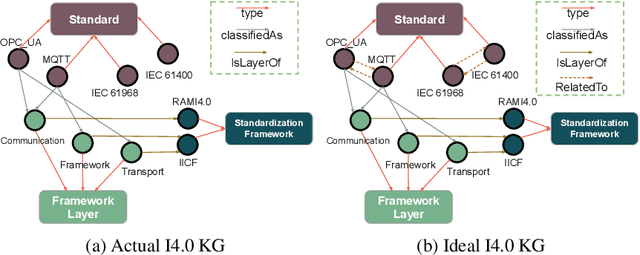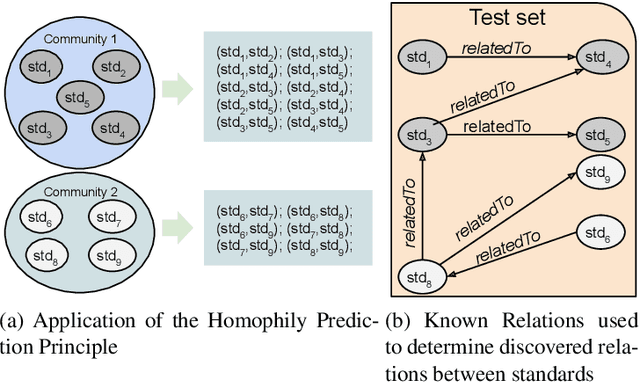Diego Collarana
Towards Enabling FAIR Dataspaces Using Large Language Models
Mar 18, 2024Abstract:Dataspaces have recently gained adoption across various sectors, including traditionally less digitized domains such as culture. Leveraging Semantic Web technologies helps to make dataspaces FAIR, but their complexity poses a significant challenge to the adoption of dataspaces and increases their cost. The advent of Large Language Models (LLMs) raises the question of how these models can support the adoption of FAIR dataspaces. In this work, we demonstrate the potential of LLMs in dataspaces with a concrete example. We also derive a research agenda for exploring this emerging field.
Unveiling Relations in the Industry 4.0 Standards Landscape based on Knowledge Graph Embeddings
Jun 03, 2020



Abstract:Industry~4.0 (I4.0) standards and standardization frameworks have been proposed with the goal of \emph{empowering interoperability} in smart factories. These standards enable the description and interaction of the main components, systems, and processes inside of a smart factory. Due to the growing number of frameworks and standards, there is an increasing need for approaches that automatically analyze the landscape of I4.0 standards. Standardization frameworks classify standards according to their functions into layers and dimensions. However, similar standards can be classified differently across the frameworks, producing, thus, interoperability conflicts among them. Semantic-based approaches that rely on ontologies and knowledge graphs, have been proposed to represent standards, known relations among them, as well as their classification according to existing frameworks. Albeit informative, the structured modeling of the I4.0 landscape only provides the foundations for detecting interoperability issues. Thus, graph-based analytical methods able to exploit knowledge encoded by these approaches, are required to uncover alignments among standards. We study the relatedness among standards and frameworks based on community analysis to discover knowledge that helps to cope with interoperability conflicts between standards. We use knowledge graph embeddings to automatically create these communities exploiting the meaning of the existing relationships. In particular, we focus on the identification of similar standards, i.e., communities of standards, and analyze their properties to detect unknown relations. We empirically evaluate our approach on a knowledge graph of I4.0 standards using the Trans$^*$ family of embedding models for knowledge graph entities. Our results are promising and suggest that relations among standards can be detected accurately.
 Add to Chrome
Add to Chrome Add to Firefox
Add to Firefox Add to Edge
Add to Edge